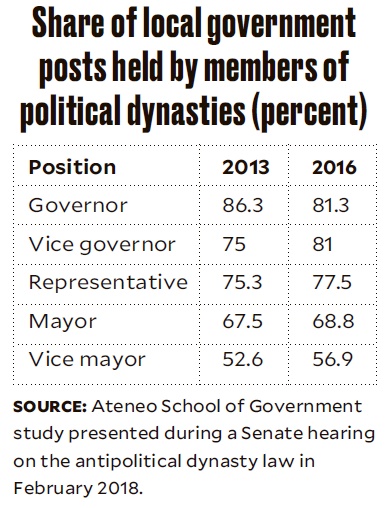IN THE KNOW: Political dynasties
The 1987 Constitution bans political dynasties but Congress has yet to pass a law implementing the Charter’s provision (Article II, Section 26).
Senate Bill No. 1765, which consolidated six other antidynasty bills, defined political dynasty as “the concentration, consolidation, or perpetuation of public office and political power by persons related to one another.”
A 2016 study by Ateneo School of Government and published in the Oxford Development Studies journal said political dynasties were responsible for the worsening poverty in the poorest areas of the country.
The study showed that 77.5 percent of the members of Congress in 2016 belonged to powerful political clans.
At the local government level, the study said these clans controlled majority of the elective posts—from 56.9 percent of the country’s vice mayors to 81.3 percent of governors. —INQUIRER RESEARCH
Sources: Inquirer Archives, presentation of the Ateneo study during a Senate hearing on the antipolitical dynasty law in February 2018
